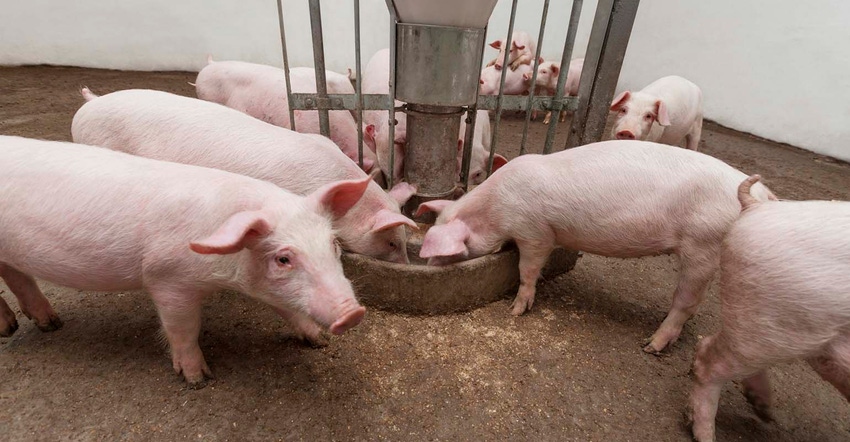October 3, 2017

Vitamin E supplements have been shown to have positive effects on piglet growth and health.
Vitamin E is a fat-soluble antioxidant absorbed in the gut and stored in the liver. Crucial to maintaining cellular function and overall swine health, vitamin E is not a synthesized nutrient made within the body and must be ingested.
“As an antioxidant, vitamin E contributes to multiple functions of swine metabolism, including immune response, detoxification, reproduction, enzyme functions, and vitamin absorption, cellular respiration and meat quality,” explains Jon Bergstrom, Ph.D., senior technical support manager for DSM Nutritional Products.
Pre- and post-natal
“Piglets are born with low vitamin E and rely on colostrum to restore levels and prevent deficiency,” says Bergstrom. “Increasing the sow’s dietary level of vitamin E prior to farrowing boosts levels of vitamin E in colostrum, allowing piglets to rapidly increase vitamin E levels after birth and maintain optimal levels until weaning.”
Deficiencies and optimal levels
In sows, recent studies have shown positive results by supplementing vitamin E with levels up to 250 IU/kg during gestation and lactation. Those studies were conducted with control levels of 44 IU/kg of vitamin E, which is the current National Research Council requirement.
The NRC requirement estimate for growing pigs ranges from 11-16 IU/kg. However, according to recent research, weaned pigs maintain better health and cellular function with a diet containing 40 to 60 IU/kg of vitamin E.
Beyond the benefits for live pig performance, vitamin E is an antioxidant with positive effects on tissues and pork quality. Research has shown a linear response between supplementation and vitamin E retention in tissues through processing, including curing. Specifically, oxidation affects meat coloration. Accumulated levels of vitamin E have been shown to improve color stability and affect meat properties such as flavor, smell and water-holding capacity.
Source: Purina Animal Nutrition LLC
You May Also Like




